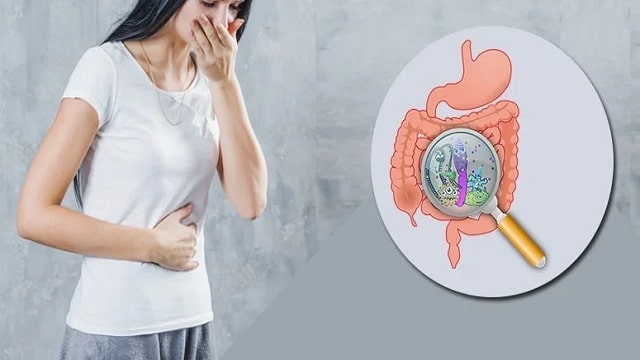Diarrhea
Diarrhea is a condition where the sufferer defecates (BAB) more often than usual. This condition can cause a person to defecate three or more times in one day. In addition, the feces that come out are also more runny.
There are two types of diarrhea that can occur, namely acute or chronic (persistent):
1. Acute diarrhea
Acute diarrhea is the type that lasts for a short time. It is a common health problem.
Usually, this condition lasts about one or two days, but it can also be longer, then disappear on its own.
2. Chronic Diarrhea
This type of diarrhea is different from the common acute diarrhea. Chronic diarrhea refers to diarrhea that lasts more than four weeks. Symptoms can be continuous or appear sporadically.
Chronic diarrhea can be a sign of a more serious health problem, such as chronic indigestion or another disease that affects the digestive tract.
Symptoms of Diarrhea
Some symptoms of diarrhea that usually occur are:
- Soft and liquid stools.
- Abdominal pain and cramps.
- Nausea and vomiting.
- Headache.
- Loss of appetite.
- Constant thirst.
- Blood in the stool.
Apart from these characteristics of diarrhea, dehydration is also the most common symptom that accompanies diarrhea.
In children, the condition has characteristics of dehydration such as infrequent urination, dry mouth, and crying without tears. In severe cases, children may appear sleepy, and unresponsive, have sunken eyes, and the skin of the stomach that is pinched does not return quickly.
Meanwhile, signs of dehydration in adults include fatigue and weakness, loss of appetite, dizziness, dry mouth, and headaches.
Along with dehydration, malabsorption can also occur when someone has severe diarrhea. Malabsorption is a condition in which the body cannot effectively absorb nutrients from food and drink.
Both dehydration and malabsorption are signs of serious and chronic diarrhea.
Risk Factors for Diarrhea
At least, there are several factors that can increase a person’s risk of experiencing this condition, such as:
- Rarely wash hands after going to the toilet.
- Unsanitary food storage and preparation.
- Rarely clean the kitchen and toilet.
- Unclean water sources.
- Eat cold leftovers.
- Not washing hands with soap.
Causes of Diarrhea
There are several things that can cause diarrhea. Generally, this digestive disorder occurs due to the following things:
- Escherichia coli ( E.coli ) bacteria. This type of bacteria can infect the stomach and cause symptoms such as diarrhea. Usually, people are infected with this bacteria from contaminated food and drinks.
- Viruses such as flu, norovirus, or rotavirus. Rotavirus is the most common cause of acute diarrhea in children.
- Parasites, which are tiny organisms that can be present in contaminated food or water.
- Intolerance or sensitivity to foods, such as lactose and fructose.
- Food allergies.
- Side effects of certain medications, such as antibiotics, cancer drugs, and antacids containing magnesium.
- Diseases affecting the stomach, small intestine, or large intestine, such as Crohn’s disease.
- Problems with bowel function, such as irritable bowel syndrome.
- Celiac disease or a disease that causes the body to reject the gluten protein.
Some people also experience this condition after abdominal surgery, as surgery can sometimes cause food to move through the digestive system more quickly.
Diagnosis of Diarrhea
To diagnose diarrhea, the doctor will conduct a medical interview, physical examination, and supporting examinations, such as:
- Examination of stool samples in the laboratory to identify infections that occur in sufferers.
- Blood tests to find out the cause of diarrhea.
- Additional examinations, such as sigmoidoscopy and colonoscopy if more serious disease is suspected.
Complications of Diarrhea
Several complications can occur due to this digestive disorder, including:
- Mild to severe dehydration.
- Sepsis, a serious infection that can spread to other organs.
- Malnutrition, especially in children under 5 years of age, can result in decreased immunity in children.
- Electrolyte imbalance because electrolytes are lost along with the water that comes out during bowel movements, which causes signs such as weakness, paralysis, and even seizures.
- The skin around the anus becomes irritated due to the acidic pH of the stool.
If you experience symptoms of diarrhea that are getting worse, you need to get immediate treatment from a doctor to prevent various complications.
Diarrhea Treatment
In most cases, mild diarrhea can be treated at home by taking over-the-counter antidiarrheal medications. Also, don’t forget to drink plenty of fluids to replace lost body fluids.
However, for chronic cases that last a long time, doctors can provide treatment based on the cause.
Here are some diarrhea treatments:
- Antibiotics. Doctors will prescribe this medication if the digestive disorder is caused by a bacterial infection.
- Treating the underlying condition. Diarrhea can be a sign of several other medical conditions, including irritable bowel syndrome (IBS), inflammatory bowel diseases (IBD) such as Crohn’s disease and ulcerative colitis, microscopic colitis, or bacterial overgrowth. Once the cause of the diarrhea is clear, your doctor can prescribe the right treatment.
- Probiotics. Probiotics are sometimes helpful in rebuilding a healthy biome to combat diarrhea.
Prevention of Diarrhea
Some efforts you can make to prevent this digestive disorder include:
- Always wash your hands, especially before and after eating, after touching raw meat, after going to the toilet, or after sneezing and coughing, using soap and clean water.
- Consume food and drinks that are perfectly cooked, and avoid food and drinks that are not guaranteed to be clean.
- Get vaccinated. Rotavirus, one of the causes of diarrhea, can be prevented with the rotavirus vaccine. This vaccine is usually given to babies in several stages during the first year of life.

